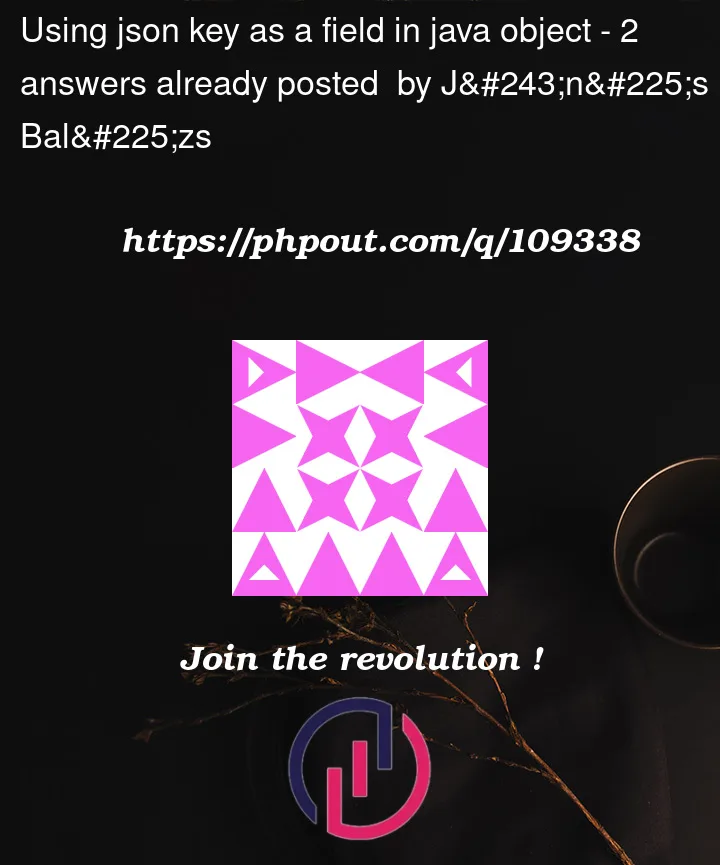I have the following json that I want to serialize and deserialize.
{
"name1": {
"key1": "value1",
"key2": "value2"
}
}
Is it possible to use a key (eg. "name1" instead of "properites") as the name property in the java object either with annotation or with custom (de)serializer?
@lombok.Data
public class Example {
private String name;
private Map<String,String> properties = new HashMap<>();
public Example(String name) {
this.name = name;
}
public void add(String attr1, String val1) {
properties.put(attr1, val1);
}
public static void main(String[] args) throws JsonProcessingException {
Example bean = new Example("name1");
bean.add("key1", "value1");
bean.add("key2", "value2");
String result = new ObjectMapper().writerWithDefaultPrettyPrinter().writeValueAsString(bean);
System.out.println(result);
}
}
The result without any config is the following:
{
"name" : "name1",
"properties" : {
"key1" : "value1",
"key2" : "value2"
}
}




2
Answers
I’m not sure why you think you need the
String name, this produces the JSON you want:If the JSON property
"name1"is just an example and can vary (not known ahead of time), this might be what you’re looking for:The output of that is:
The keys to this working are
@JsonAnyGetterand@JsonAnySetterwhich are generally for serializing/deserializing arbitrary properties that don’t have dedicated, named fields or getters.By using
@JsonIgnoreon the fields themselves, this allows the "dynamic" properties to shine through instead of the internal representation of the Java object.